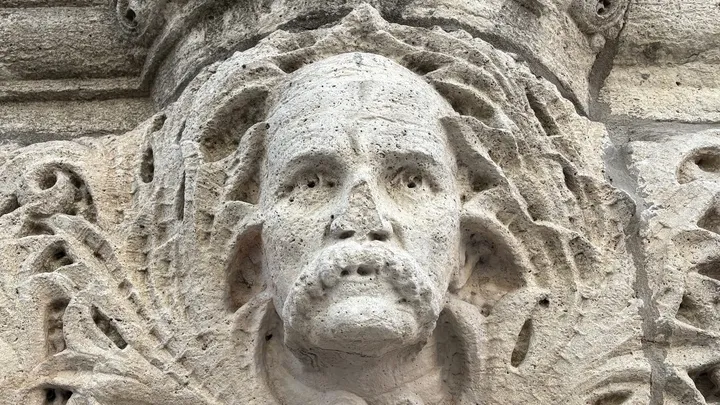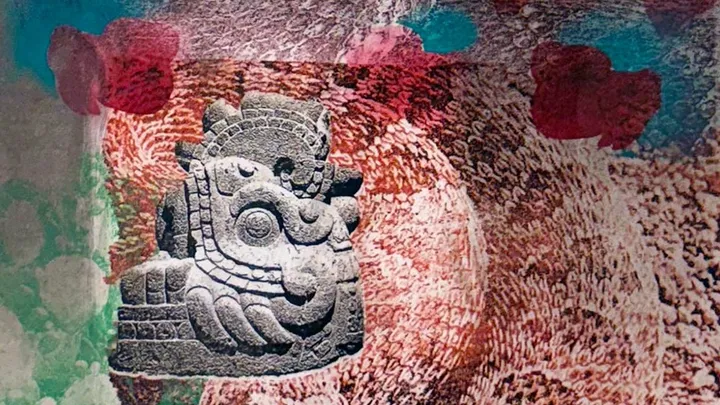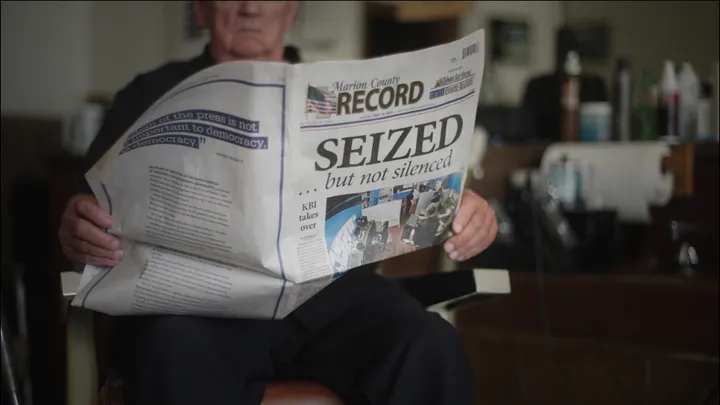Asserting contemporary Native life: Short films at the AlterNative Film Festival
You can watch all four short films this Saturday, November 8, at the Mid-American All-Indian Museum.
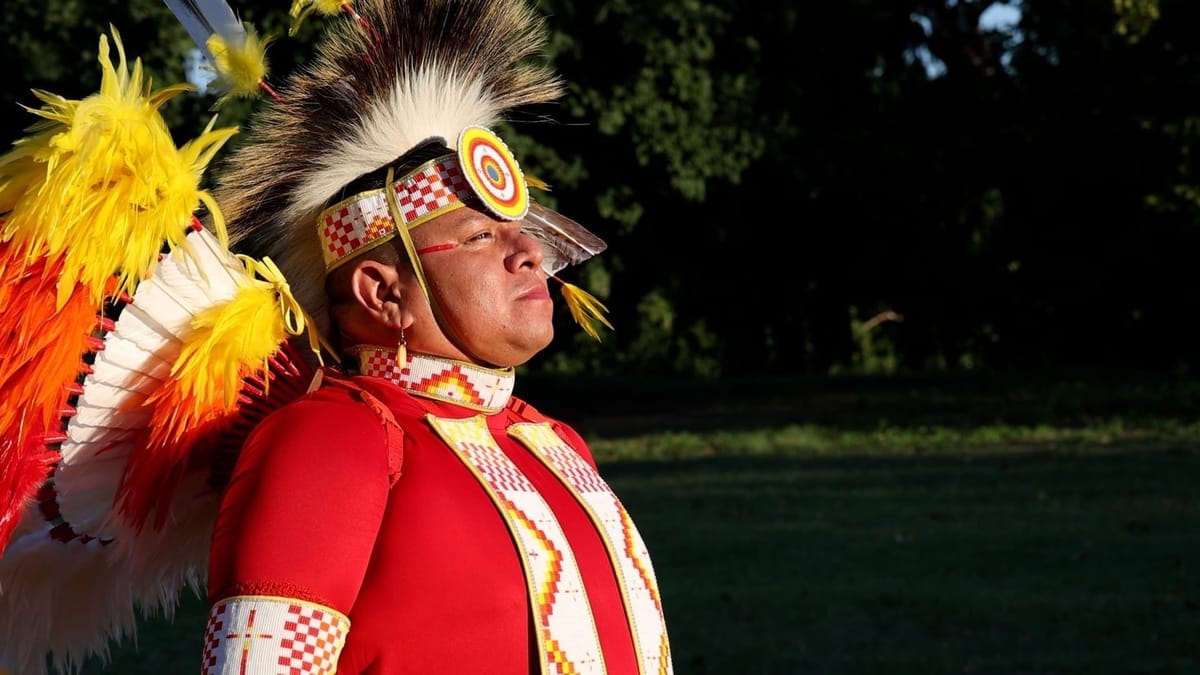
The fourth AlterNative Film Festival's Saturday afternoon shorts program includes four short films highlighting modern Indigenous experiences.
'Anonymous'
“Anonymous,” written by Ryker Sixkiller and directed by Sixkiller and Colby Luper, takes place at an AA meeting in a Tulsa strip mall. A stranger (Sixkiller) shows up and won't introduce himself, saying he's not there for the meeting but has business with the group leader, Seth (Bronnson Tre Harjo). At ten minutes, the film is short on plot; still, it touches on themes like alcoholism in Native communities, dysfunctional group dynamics, and misplaced trust, and features some fun, chaotic fight choreography (also by Sixkiller), in cinematic black and white.
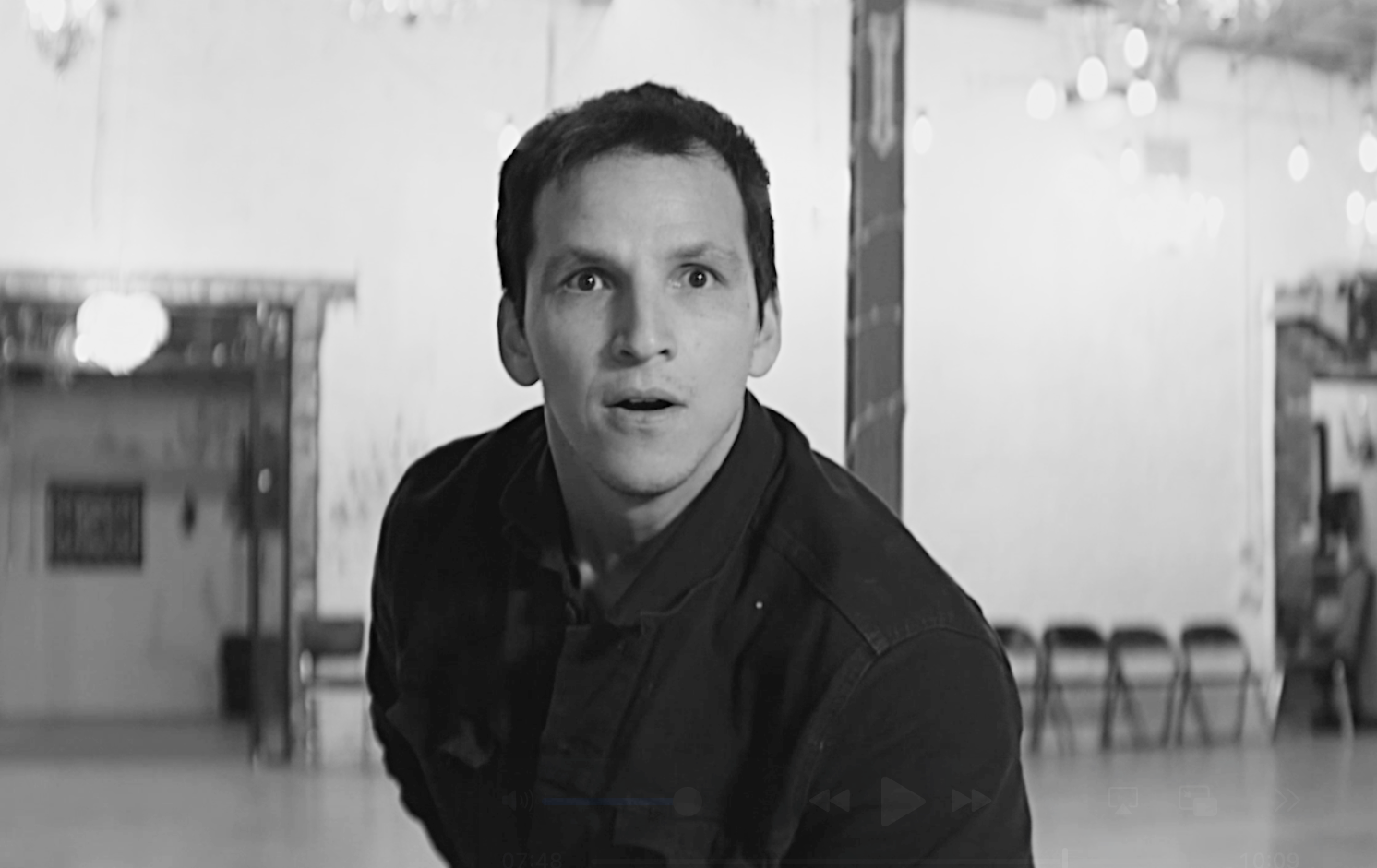
'Incident at Juniper Ridge'
The longest short of the four at twenty-five minutes, “Incident at Juniper Ridge” is in the Diné language (also known as Navajo) with English subtitles. It's the story of siblings (Tilton Tso and Nanabah Rockbridge) who encounter an armed and injured stranger (Evan Littlefish) alone in the mountains. He offers them money in exchange for water, food, and help tending to his wound, but refuses to tell them how he was hurt, or who he's running from — of course, when his pursuers arrive in a beat-up pickup, his secrets put himself and the kids in danger.
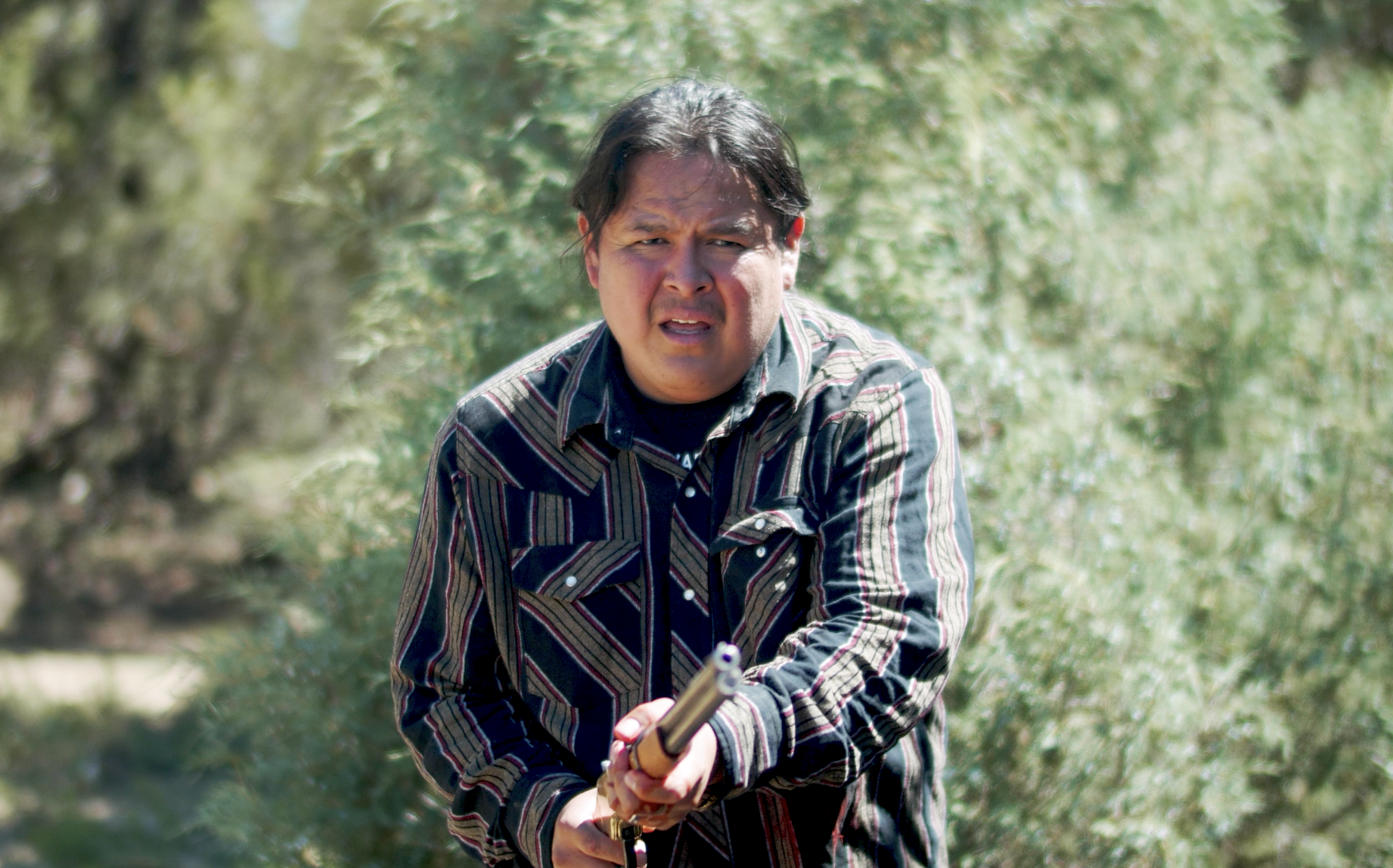
“Incident at Juniper Ridge,” directed by Brandon Barber and written by Barber and Evan Littlefish, is beautifully photographed, again by Barber, and does a good job distinguishing its characters without giving them names — the adult men all carry different guns, and I immediately referred to them as Rifle, Handgun, and Shotgun in my head. There's also a historical flashback sequence where a pair of grunting conquistadors bearing gold are killed by a naabaahii (Diné for “warrior”), lavishly costumed in vividly painted hides, with a cougar-head headdress.
'People of the Heartland'
AlterNative Film Festival founder Rodrick Pocowatchit's “People of the Heartland” is an introduction to the Native community of Wichita. A title card says that in 2020, about 5,300 Wichitans identified as Native, 1.33% of the population — yet that small percentage is diverse, containing people from many nations. Ben Eagle Feather (Rosebud Sioux), founding member of Native recovery group Prairie Rose Wellbriety, explains that the meeting of the rivers, where the Keeper of the Plains statue now stands, was once a neutral space where tribes from north and south would meet. Because the original inhabitants, the Wichita, were forced off their land in the early 1800s, the modern Native community, says Eagle Feather, also brings together multiple cultures: “You can learn beading from southern people, you can learn northern drums.”
Our free email newsletter is like having a friend who always knows what's happening
Get the scoop on Wichita’s arts & culture scene: events, news, artist opportunities, and more. Free, weekly & worth your while.
No spam. Unsubscribe anytime.
The four other Native Wichitans interviewed by Pocowatchit — entrepreneur Amber Williams, Muscogee (Creek); librarian Daniel Pewewardy, Comanche; Chantal Nez Dominguez of WSU's Community Engagement Center and Hunter Health, Diné; and Wichita War Dancer Greg Victors, Tohono O'odham/Ponca — all stress that Indigenous people are still here, part of modern history. Victors' Ponca grandparents worked in Wichita aircraft plants during World War II, for example, and his parents met at Haskell Indian Nations University in Lawrence. Although just a brief introduction to Wichita's Native community, “People of the Heartland” makes a strong argument for its diversity and vitality.
'Abby Scott: A Rezball Legacy'
The final film of the program, “Abby Scott: A Rezball Legacy,” showcases basketball player Abby Scott, from the Warm Springs Reservation in central Oregon. Scott received a full Division 1 scholarship to New Mexico State University, where she was known for sinking 3-pointers: “my coach used to giggle that my range was as soon as I got off the bus,” Scott says, her pride and confidence in her skills evident. As a sophomore, she set a Western Athletic Conference record for making eleven threes in a game. The NMSU Aggies were conference champions in her junior and senior years.
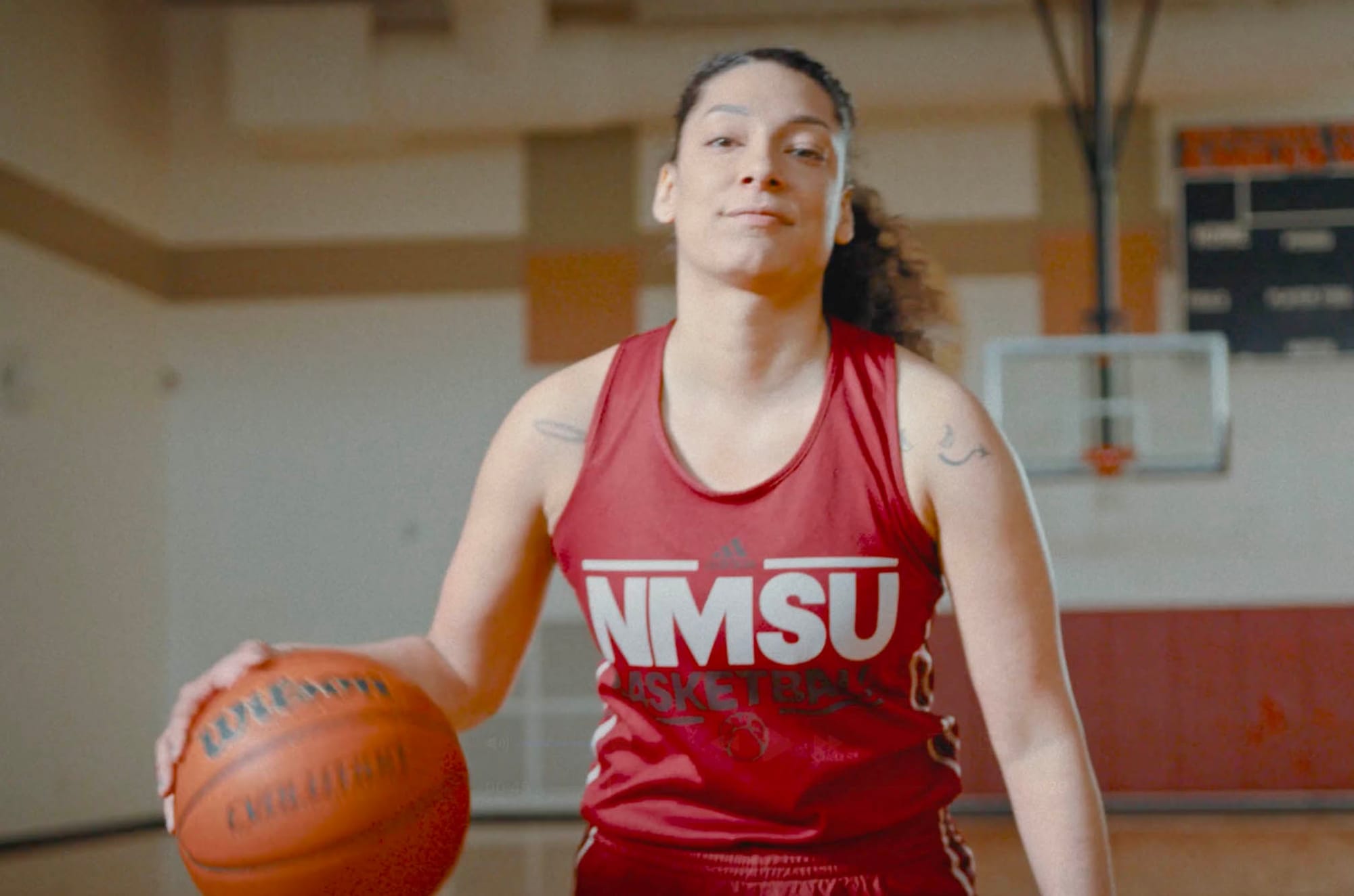
The short profile, which mixes talking-head interviews, action shots of Scott playing basketball and coaching Warm Springs youth, and location footage of the reservation, was produced by The Warm Springs Community Action Team as part of a documentary workshop. Facilitated by LaRonn Katchia and Brutis Baez, the “Filming with an indigenous lens” workshop was created “to empower the next generation to tell their own stories.”
The shorts total 53 minutes and will screen at 3 p.m. on Saturday, November 8. All AlterNative Film Festival events are free and take place at the Mid-American All-Indian Museum, 650 N. Seneca.
Anna Andersen co-hosts Your Favorite Bad Movie Podcast with their husband. They have three cats named Brains, Hamburger, and Twinkle.
❋ Derby man has the kind of voice that turns heads — and chairs
❋ Socializing while sober: how some Wichitans are cultivating alcohol-free communities
❋ As a small creative business closes, the owner mourns
❋ Painting through it: Autumn Noire on 20 years of making art
❋ How a guy from Wichita resurrected 'Dawn of the Dead'
❋ Bygone Friends University museum housed curious collections
Support Kansas arts writing
The SHOUT is a Wichita-based independent newsroom focused on artists living and working in Kansas. We're partly supported by the generosity of our readers, and every dollar we receive goes directly into the pocket of a contributing writer, editor, or photographer. Click here to support our work with a tax-deductible donation.

